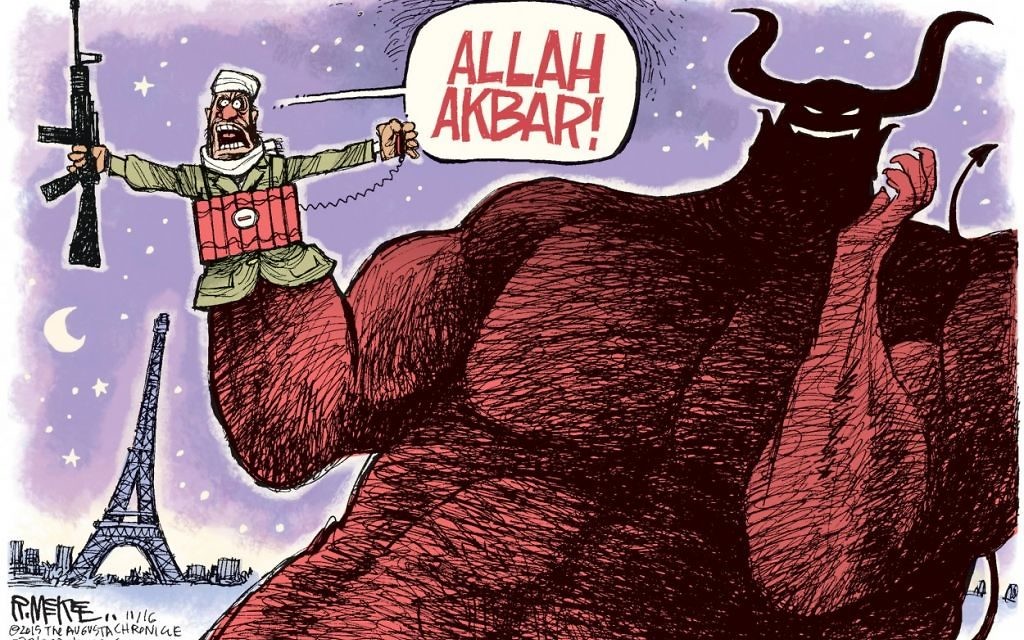Our View – The Enemy
Yet again the terror has struck. Yet again the horror has hit home. Yet again we’re desperate to strike back, and yet again we’re frustrated at the ephemeral nature of an enemy that seems to worship nothing but death.
The slaughter across Paris on Friday the 13th was not the first or worst terrorist attack we have seen in this bloody century that began in intifada and bus bombings and quickly brought us 9/11 and the falling Twin Towers. The attacks have been remarkable in their relentlessness and their variety — from the spur-of-the-moment nihilism of the random knifings, shootings and vehicle rammings that are torturing Israel to the complicated logistics and heavy firepower of the bombing of the Russian airliner in the Sinai and the coordination of the eight-person, multisite assault on Paris.
The roll call of victimized cities — places where anyone could have been transformed from citizen or civilian to casualty in the blink of an eye — includes London, Madrid, Nairobi, Beirut, Mumbai, Ottawa and Copenhagen, each with an unwanted sister city in terror in Israel.
Get The AJT Newsletter by email and never miss our top stories Free Sign Up
The attacks have been irregular and unpredictable in their individual details but relentless and unmistakable in the big picture they form. As French officials have acknowledged at least 10 months too late, we are at war. But with what? With whom?
The three Democratic presidential candidates made a spectacle of themselves at their debate Saturday night, Nov. 14, when they couldn’t bring themselves to acknowledge any connection between the terrorists and Islam, although Hillary Clinton’s “radical jihadists” doesn’t provide much separation from the only religion that embraces jihad.
By the same token, the word games over what to call the group that took credit for the Paris attack are nonsensical. It could be Islamic State, Islamic State in Iraq and Syria, or Islamic State in Iraq and the Levant, and thus IS, ISIS or ISIL. Some urge that we use the Arabic acronym Daesh, which means the same thing as the English acronyms but also forms a pejorative word that the group supposedly hates.
So if they’re going to kill us, we’ll call them names.
It’s true that words have power, but when we play these semantic games, we abuse that power. To understand this particular enemy, we need to understand its goals and motivations, reflected in its name: It wants to establish a state governed by its particular form of virulent Islam. Pretending otherwise doesn’t change that reality. Nor does it help the overwhelming majority of Muslims, who are prime targets of Islamic State killers for failing to adhere to a vision of Islam as a death cult.
Our refusal to see Islamic State’s vision also blinds us to the bigger picture. Islamic State is just one of many groups twisting Islam into a violent ideology. It may be ascendant among them now, but if we pretend it is a unique evil, fighting it will be no more meaningful than our war against Al-Qaeda.
Even if we succeed in crushing Islamic State, we’ll just open the way for others to take its place.
We must acknowledge that while we are not at war with Islam or with Muslims, we — the civilized world with our respect for life and liberty — are battling those who would use extreme violence and a radicalized version of Islam to control people. Otherwise, more cities will share Paris’ pain.





comments